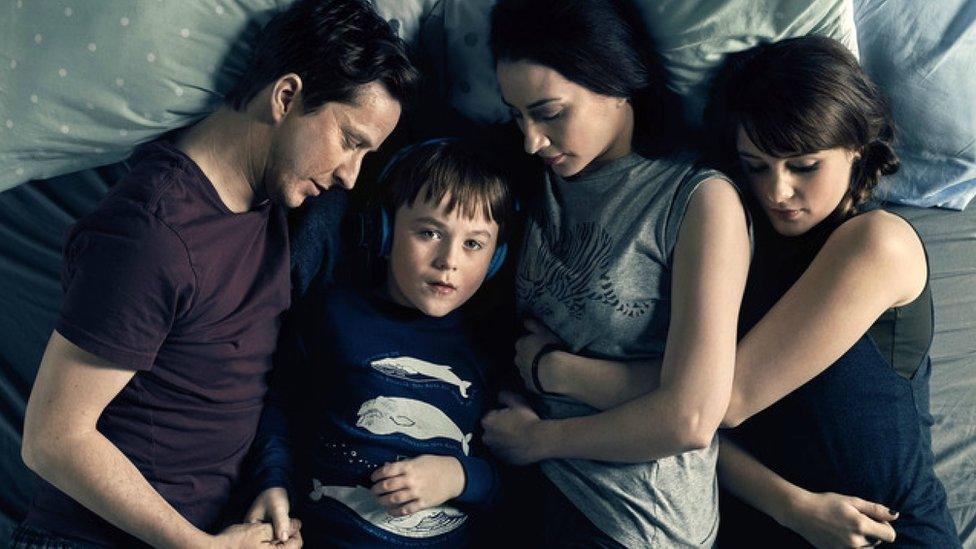'I have dark thoughts about my children's autism'
- Published
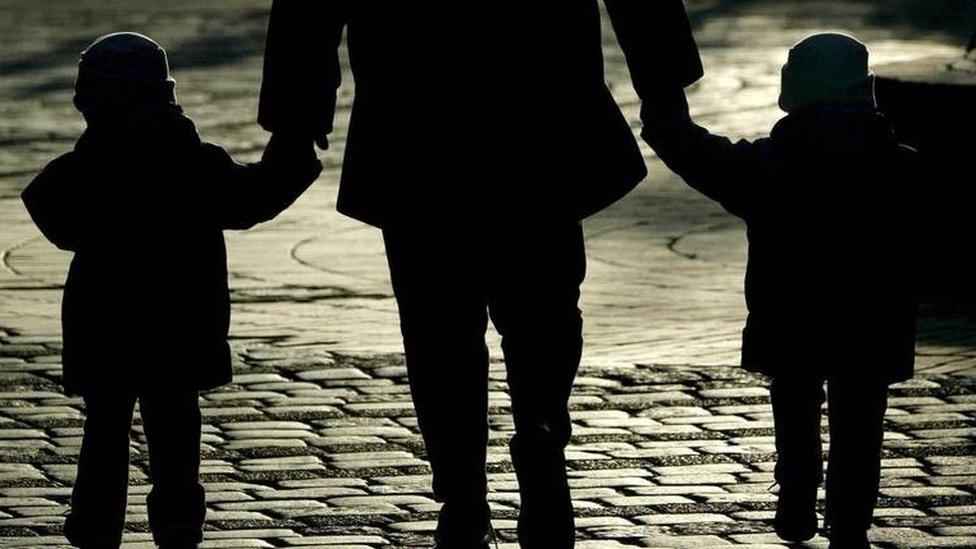
Some parents of disabled children can appear unwaveringly positive. But one mother says her children's autism has left her with "dark thoughts" and she wishes their impairments would disappear.
"It just stops everything dead," she says, the moment she tells anyone all three children have autism.
Christine, not her real name, loves and is proud of her children, but she says she cannot abide the pressure she feels to be "relentlessly positive" about their condition because of the restrictions it puts on all of them.
She says parents are often depicted cheerfully talking about the "breakthrough moments" and slight improvements their children make which they seem fulfilled by - but which she can't grasp.
"I often feel there's not really space in the autism world for a mother to say 'I really wish this wasn't happening, I don't feel blessed, I don't feel strong, I don't feel like it's all happening for a reason'.
"I get riled when people say well-meaning things like 'you must be a really strong person because you wouldn't be given more than what you can deal with' - this just doesn't feel like a reward, actually."
Find out more
Listen to Christine speaking to BBC Radio 4's iPM programme on the podcast page.
You can also hear the mother's account in audio here.
Christine is a single mum and works as a psychiatric nurse.
Her son, 19, was diagnosed with autism aged six followed by dyspraxia and a mood disorder; her 17-year-old daughter was diagnosed with autism and ADHD in 2015; and her 14-year-old daughter was diagnosed when she was eight.
"For me, the diagnosis of my middle child was earth-shatteringly awful because I think, on reflection, I always had this notion that 'one of them's going to be alright' and I found that crushing."
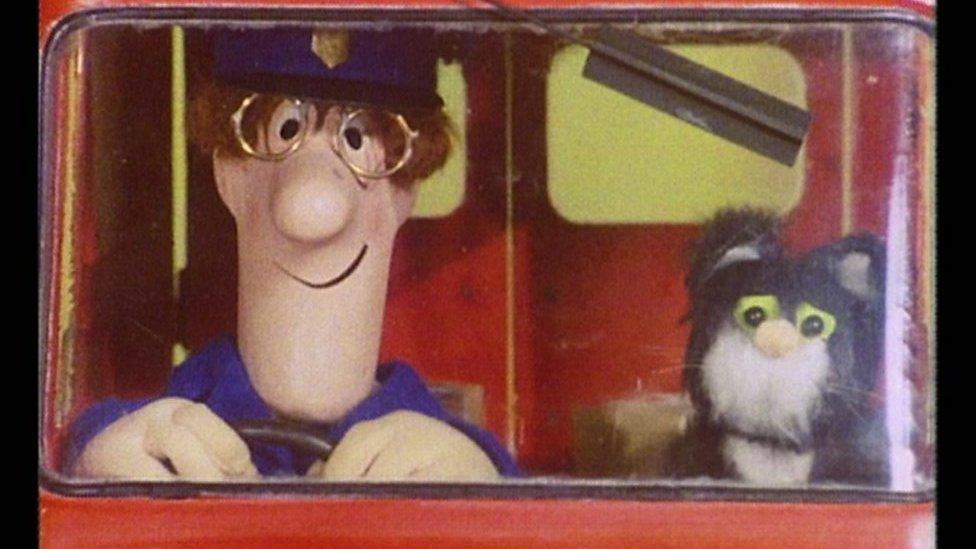
"There's a celebratory notion that this is a fantastic thing," she says, and feels that the community won't let people be anything other than relentlessly positive.
"I love my children and I'm so proud of what they can do - but if I could take away the difficulties that they've got and give them different lives, then I would."
Journalist Michael Blastland has a 22-year-old son, Joe, who lives in a residential unit with "pretty profound" autism and limited communication.
He says Joe has "character and spirit" and a "deep obsession" for Postman Pat - so much so, there are three VCRs stashed in the attic for when one breaks down.
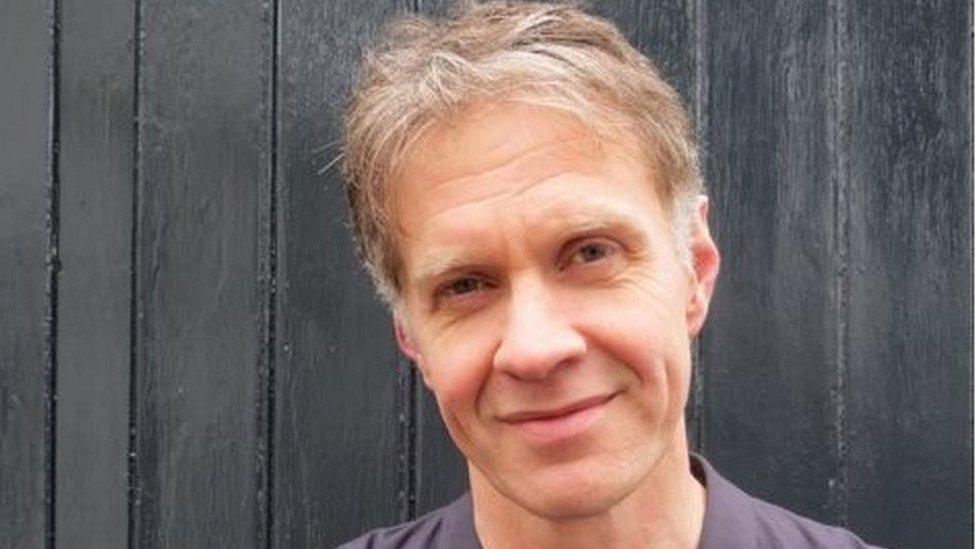
Blastland recognises what Christine means about feeling uncomfortable with the uptalk, but says: "I still try and hang on to these little extraordinary facets of Joe's character and ability."
He says the "autism pride movement" can be problematic for those who don't assign to it - and there are also those with autism who take pride in their difference, which is "perfectly legitimate in many ways".
But, he also says, "you cannot say that all people with autism are fine [self-sufficient]", and as much as he loves Joe, he admits "if I could wave the wand, I'd take it away in a stroke.
"I just wish that I could say that without leaving the other people who have the same label feeling threatened."
One person who struggles to understand Christine's point of view is Jo Lewis, whose 12-year-old daughter Holly has autism.
It manifests itself through separation anxiety, distress at loud noises, social struggles and taking idioms like "it's raining cats and dogs" literally.
"I saw the diagnosis as opening the door to support, but we've had moments of despair, we've cried and screamed and argued about it," she says.
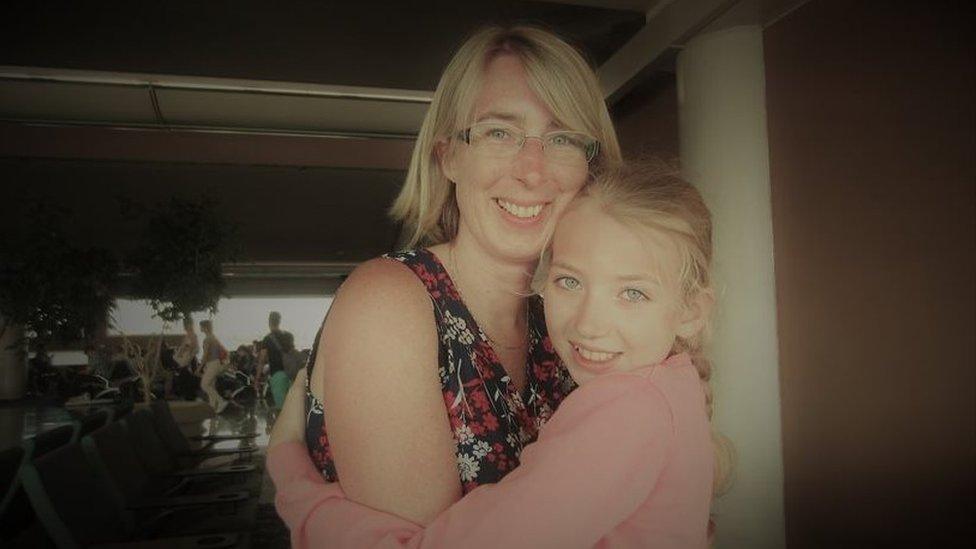
"You have a bad moment - and then I'll glance at the piano which she plays beautifully, and she wouldn't be who she was if she didn't have autism.
"Sometimes I feel guilty because other people struggle, but I would not take autism away from Holly; autism is what people make of it."
Christine, too, recognises that as much as she despairs at the expectation of positivity, she doesn't wish to upset others who focus on it.
"Perhaps it looks a little uncaring or a little selfish, because you're not just selflessly embracing everything around your children," she says, but as her children grow and their needs become more complex, the joy continues to recede.
For years, Christine's children attended mainstream school - but it caused great distress.
They recognised they were different to their peers, which "hurt and damaged them"; her son asked for an invisibility cloak and one daughter talked of suicide. All three have since been placed in special schools.
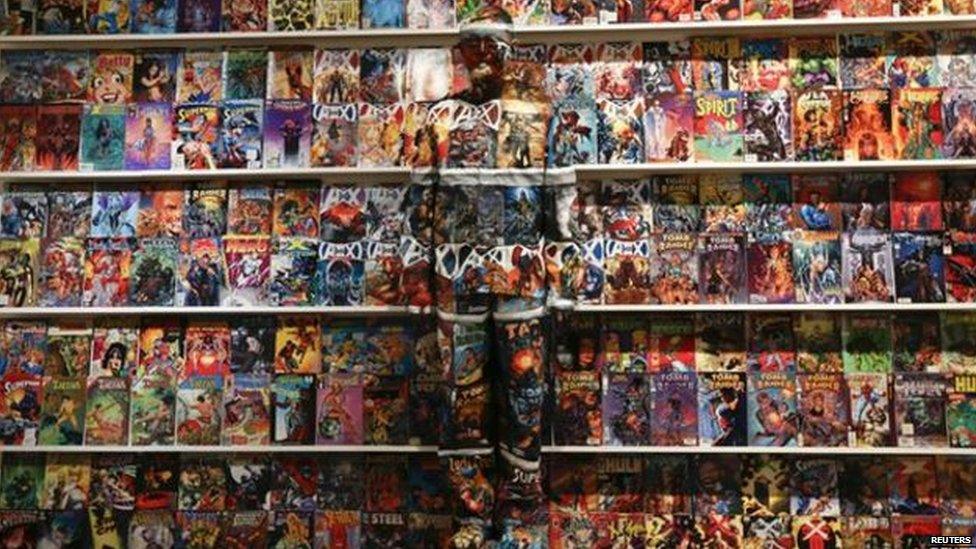
Can you spot him?
She says despite working as a psychiatric nurse, which gave her "inside knowledge" into the system, she worries how their adult lives will pan out.
When her eldest son turned 18, he lost his mental health support - and Christine's "absolute fear" is that he will "just disappear", as he does not have the ability to contact services himself.
"No one would know if he got poorly," she says.
"He would lie in his bed and just stop eating and drinking; he wouldn't move and nobody would know."
Christine says she finds it very difficult to find the positives here, but there are glimmers of joy she hangs on to.
"My eldest was very withdrawn as a youngster, he wouldn't tolerate physical touch, there was no recognition from him that you were someone he knew.
"He ran up to the man dressed as Santa Claus and, referring to me, he said: 'Santa Claus, that's my Mummy'.
"It was so rare to think that he even knew who I was that I carry that in my heart."
Produced by Beth Rose

For more Disability News, follow on Twitter, external and Facebook, external, and subscribe to the weekly podcast.
Related topics
- Published22 March 2016
